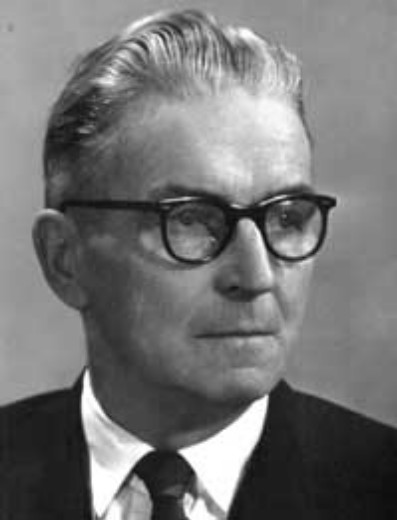Antonenko-Davydovych, Borys
Antonenko-Davydovych, Borys [Антоненко-Давидович, Борис; Antonenko-Davydovyč] (pseud of Davydov), b 5 August 1899 in Romny, Poltava gubernia, d 9 May 1984 in Kyiv. Writer, journalist, and an active participant in the post-1917 renaissance of Ukrainian culture. Antonenko-Davydovych studied natural science at Kharkiv University and philology at Kyiv Institute of People's Education. During the 1920s he was a member of the editorial board of the newspaper Proletars’ka pravda and coedited the journal Hlobus. His work was first published in 1923 in the journal Nova hromada, Zhyttia i revoliutsiia, and Chervonyi shliakh, among others. He was a member of the literary group Lanka (later MARS). His first works published separately were the drama Lytsari absurdu (Knights of the Absurd, 1924) and the collections of stories and short novels Zaporosheni syliuety (Dusty Silhouettes, 1925), Tuk-tuk (1926), and Synia voloshka (The Blue Cornflower, 1927). Antonenko-Davydovych's novel Smert’ (Death, 1928), which became very popular but was at the same time sharply criticized for nationalism, describes the then-current problem of the betrayal of his nation by a Ukrainian intellectual who becomes a Communist. Antonenko-Davydovych was again accused of nationalism for his book of travel vignettes, Zemleiu ukraïns’koiu (Through the Ukrainian Land, 1930). He was arrested in 1935, imprisoned until 1956, and then exiled to Central Asia.
After being ‘rehabilitated’ in 1957, he returned to Kyiv. The following years saw the publication of his collections of stories and sketches Zbruch (1959), V sim'ï vol’nii, novii (In the Free, New Family, 1960), and Zolotyi korablyk (The Little Golden Ship, 1960), and the short novel Slovo materi (The Mother's Word, 1964). His best-known postwar novel, Za shyrmoiu (Behind the Screen, 1963), was also harshly criticized for deviating from the principles of socialist realism. The novel, set in contemporary Uzbekistan, raises the question of a humanitarian attitude towards people, and especially that of children towards their parents. Antonenko-Davydovych had two unfinished novels: Sich-maty (Mother Sich) and Nashchadky pradidiv (Descendants of Ancestors). Collections of his articles on literary topics and literary criticism—Pro shcho i iak (On What and How, 1962), V literaturi i kolo literatury (In Literature and around Literature, 1964), Zdaleka i zblyz’ka (From Far and Near, 1969)—and on linguistic themes—Iak my hovorymo (How We Speak, 1970)—also appeared. Antonenko-Davydovych had a significant influence on the literary generation of the 1960s (see Shistdesiatnyky). For his protests against Russification and his defense of Ukrainian dissidents he was again persecuted from the mid-1960s, and from the early 1970s publication of his works was were suspended and his books were banned in the Ukrainian SSR. Antonenko-Davydovych’s correspondence, edited by Dmytro Chub, was published in the West, in Melbourne, in 1986. A two-volume edition of Antonernko-Davydovych’s works was published in independent Ukraine in 1991.
BIBLIOGRAPHY
Lavrinenko, Iurii. Rozstriliane vidrodzhennia (Paris 1959)
Boiko, Leonid. ‘Borys Antonenko-Davydovych,’ in Ukraïns’ki radians’ki pys’mennyky, 6 (Kyiv 1968)
Chub, Dmytro. Borys Antonenko-Davydovych (Melbourne 1979)
Kakhulia, Oleksander. B. Antonenko-Davydovych u pazuriakh chekistiv: Spohady (Melbourne 1987)
Onyshkevych, Larysa (ed). Lytsar neabsurdnykh idei. Borys Antonenko-Davydovych: Zbirka spomyniv, lystiv i malodostupnykh tvoriv (Kyiv 1994)
Semenchuk, Ivan. Borys Antonenko-Davydovych: Literaturnyi portret (Kyiv 1997)
Boiko, Leonid. Z kohorty oderzhymykh: Zhyttia I tvorchist’ Borysa Antonenka-Davydovycha v literaturnomu protsesi XX st. (Kyiv 2003)
Boiko, Leonid (ed). Podvyzhnyk dukhu: Dokumenty i fakty z zhyttia Borysa Antonenka-Davydovycha (Kyiv 2003)
Ivan Koshelivets
[This article was uipdated in 2008.]

 members 1920s.jpg)
.jpg)